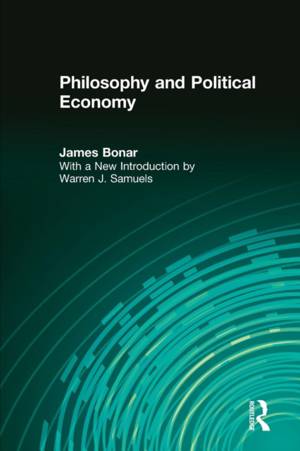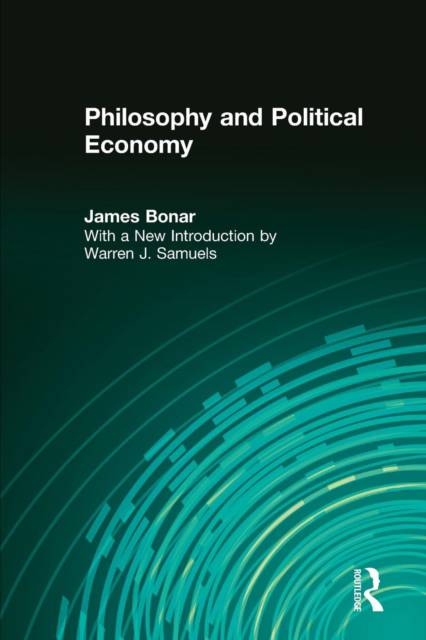
- Retrait gratuit dans votre magasin Club
- 7.000.000 titres dans notre catalogue
- Payer en toute sécurité
- Toujours un magasin près de chez vous
- Retrait gratuit dans votre magasin Club
- 7.000.0000 titres dans notre catalogue
- Payer en toute sécurité
- Toujours un magasin près de chez vous
Description
This volume is one of the most remarkable works in the history of economic thought. First published in 1893, its principal significance rests in its argument that economic theory, however technical or pragmatic, is necessarily formed by and derives its meaning from larger moral and philosophical systems and assumptions. Bonar traces the inexorable presence of this moral and philosophical element in a vast, though highly nuanced, survey of the economic aspect of major thinkers from Plato to Darwin and demonstrates how modern economic thought, in turn, grew out of one or another branch of philosophy. Bonar begins with a consideration of Plato and Aristotle, examining their conceptions of wealth, production and distribution, and civil society. Discussions of the Stoics, Epicurians, and early Christianity explore complications introduced by these bodies of thought. His analysis of the classical and medieval world is followed by an extensive treatment of the concept of natural law, from the Renaissance through the Enlightenment, describing its influence and its relation to ideas of natural rights. The book's later sections concentrate on the dominant modes of ninteenth-cen-tury thought: utilitarianism, idealism, and materialism. Bonar identifies and explores the philosophical topics on which the conduct of technical economic analysis makes assumptions: human nature and human wants, the nature and role of the state, the relation of the individual to society, the nature and origin of property, and the role of ideals in socioeconomic life. He concludes by examining the implications for economics of the theory of evolution arising from the work of Darwin and others. The continuing interest of this volume for economists, philosophers, and sociologists lies in Bonar's contention that at the heart of the relationship of philosophy to economics is the problem of order: the ongoing need to reconcile conflicts between freedom and control, continuity and change, hierarchy and equality. In his reading, the fundamental question to which philosophy and economics are both brought to bear is that of changing the structure of power and opportunity in the social economy. This is, in short, a classic in the history of economics as well as the economic element in intellectual history.
Spécifications
Parties prenantes
- Auteur(s) :
- Editeur:
Contenu
- Nombre de pages :
- 316
- Langue:
- Anglais
Caractéristiques
- EAN:
- 9781412865272
- Date de parution :
- 16-02-18
- Format:
- Livre broché
- Format numérique:
- Trade paperback (VS)
- Dimensions :
- 152 mm x 229 mm
- Poids :
- 421 g

Les avis
Nous publions uniquement les avis qui respectent les conditions requises. Consultez nos conditions pour les avis.






